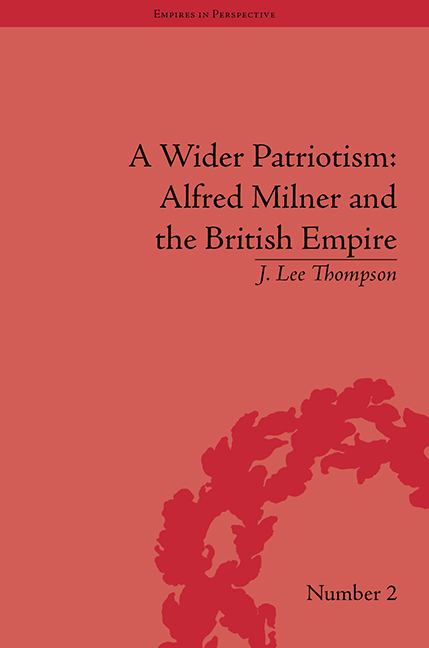Book contents
- Frontmatter
- CONTENTS
- Preface
- Acknowledgments
- Part I A Question about Which I Have Never Been Able to See the Other Side
- Part II Civilian Soldier of the Empire: South Africa
- 4 Building Bridgeheads to War
- 5 Milner and the Imperial Ladies
- 6 The Most Important Question: Race in South Africa
- 7 A Kindergarten to Govern the Country: South African Reconstruction
- Part III Constructive Imperialism
- Part IV Imperialism on the Anvil
- Notes
- Works Cited
- Index
6 - The Most Important Question: Race in South Africa
from Part II - Civilian Soldier of the Empire: South Africa
- Frontmatter
- CONTENTS
- Preface
- Acknowledgments
- Part I A Question about Which I Have Never Been Able to See the Other Side
- Part II Civilian Soldier of the Empire: South Africa
- 4 Building Bridgeheads to War
- 5 Milner and the Imperial Ladies
- 6 The Most Important Question: Race in South Africa
- 7 A Kindergarten to Govern the Country: South African Reconstruction
- Part III Constructive Imperialism
- Part IV Imperialism on the Anvil
- Notes
- Works Cited
- Index
Summary
A month after Milner's arrival, South Africa, like the rest of the Empire, celebrated Victoria's Diamond Jubilee. The High Commissioner presided over several days of activities in Cape Town which began 20 June 1897 with a service at St George's Cathedral and included a well-attended school children's event the next day at which Milner was serenaded by a choir of 6,000 white and black children assembled on the lawn of Government House. In his address to the children and their parents, Milner expressed the hope that every white child would soon be attending school and that there might be ‘proportionate development in the education of the coloured children’.
Acting as hostess for the occasion, Mrs Hanbury Williams, the wife of Milner's military secretary, shocked local opinion by kissing the cheeks of both a white girl and a black girl who presented her with bouquets of posies. A London friend informed Milner that the British papers had reported nothing of the Jubilee in South Africa except the kisses. Milner replied that he agreed with ‘his friends in the press’ as the incident ‘really was the most important thing that had happened since I came here – at least it has excited the greatest amount of general public interest and controversy. I think she was right. Most white people in South Africa think she was wrong. There you have the great S. African problem posed at once. It is the Native Question.’ He went on that the Anglo-Dutch friction was ‘bad enough. But it is child's play compared with the antagonism of White and Black. That the White man must rule is clear – but how? That is the point where my views and those of most Englishmen differ radically from those of most colonists. And this, not the Dutch business, is the subject with respect to which I foresee the greatest difficulty.’
In the parlance of Milner's day, the ‘Race Question’ in South Africa referred to Boer versus Briton.
- Type
- Chapter
- Information
- A Wider PatriotismAlfred Milner and the British Empire, pp. 70 - 87Publisher: Pickering & ChattoFirst published in: 2014



